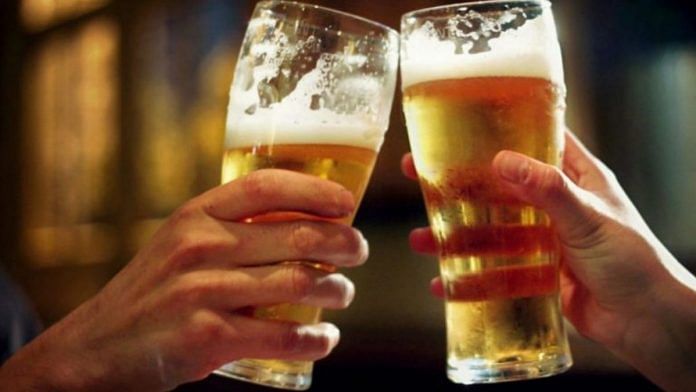Beer will become increasingly expensive and could be in short supply by the end of the century because of climate change, experts say.
Increased droughts and extreme heat waves are threatening crops of barley, the grain typically used in beer, and also water, which makes up to 95% of an average beer.
Brewers are responding by improving their sustainability credentials. Here are some examples.
1. Heineken’s zero-carbon breweries
Based in Amsterdam, Heineken aims to be a carbon-neutral producer of beer by 2030 and have a carbon-neutral supply chain, including agriculture, packaging, distribution and cooling, by 2040. Using renewable energy to power its breweries is key to this.
In Spain, for example, Heineken has signed a deal with energy supplier Iberdrola to power all four of its Spanish breweries and its offices with solar power. It then plans to replace existing gas boilers with ones that use biomass.
This will allow it to brew beer using only renewable energy by 2023, when Heineken Spain aims to be 100% carbon neutral. Heineken has implemented more than 130 renewable energy projects since 2018, including five of the world’s 10 largest on-site solar-powered breweries, according to Global News Wire.
2. Carlsberg invests in natural carbon capture
Danish beer giant Carlsberg has joined forces with conservation charity WWF to help restore seagrass meadows around the UK coastline. Consumers can donate to the project through buying special edition packs of beer.
Seagrass is a marine plant that can absorb carbon up to 35 times faster than a rainforest when it is massed together in underwater meadows. These natural carbon sinks are at risk from pollution and extreme weather.
The project is part of Carlsberg’s Together Towards Zero sustainability strategy, which includes targets to halve carbon emissions at its breweries by 2022.
Also read: Move over beer, brandy and gin are the perfect pandemic drinks
3. AB InBev uses blockchain to boost sustainability
Anheuser-Busch InBev, based in Belgium, is one of the largest buyers of barley globally for beer brands including Budweiser, Corona, Beck’s and Leffe. In a pilot project in Europe, it is using blockchain technology to track where the barley in every beer comes from.
As well as giving consumers an end-to-end view of a product’s supply chain, the project aims to improve growers’ yields, water and energy efficiency and soil health.
The brewer’s sustainability goals include measurably improving water availability and quality in all of its communities in high-stress areas by 2025.
4. BrewDog’s tree solution
BrewDog, a craft brewer and pub chain based in Aberdeenshire, Scotland, is planting millions of native trees on its own patch of forest in the Highlands of Scotland.
The company says the 50 square kilometres Lost Forest project, west of Aviemore in the Cairngorms National Park, is the biggest native woodland establishment and peatland restoration project ever carried out in the UK. “Overall, the Lost Forest is capable of pulling 1 million tonnes of carbon dioxide out of our atmosphere,” said BrewDog chief executive and co-founder James Watt.
The company says it has been carbon negative since August 2020 and is removing double the carbon it emits.
Also read: Women ran the beer industry — then witch rumours poured in
5. A warning in a can
New Belgium Co, based in Colorado in the United States, says it is the first American company to create a nationally distributed carbon-neutral beer. The limited edition ‘Torched Earth Ale’ uses ingredients like dandelions, hop extracts and smoke-tainted water instead of the usual purified ingredients used to make beer.
The company says the beer has been intentionally designed to taste “not great”, using “the kind of ingredients that would be available in a climate-ravaged future”.
The aim is to shock bigger beer businesses into action to help tackle the industry’s carbon footprint.
This article has been republished from the World Economic Forum. Read the original article here.



